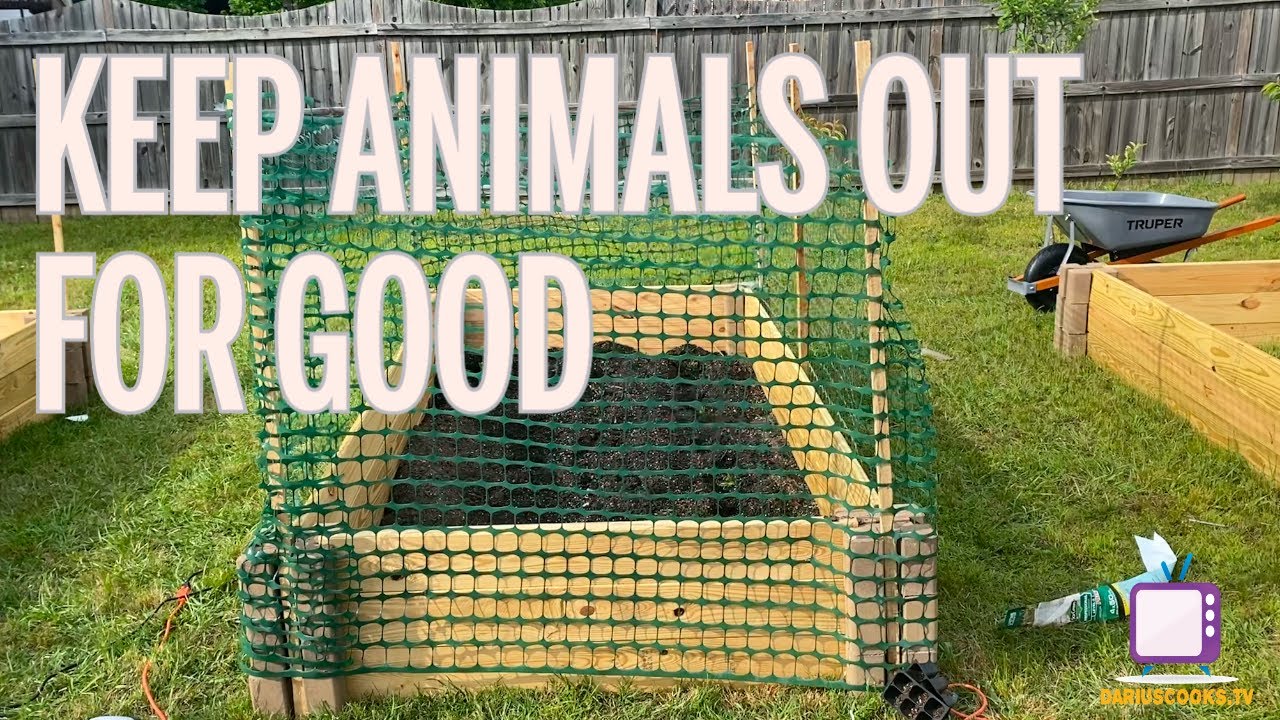Introduction
Raising your own garden bed offers numerous benefits, from better soil control to easier maintenance. However, one common challenge gardeners face is keeping animals out of raised garden beds. Animals like rabbits, deer, squirrels, and even household pets can damage plants, eat seedlings, and disturb the soil. Protecting your garden not only preserves your hard work but also ensures a healthy and fruitful harvest.
In this article, we’ll explore proven and practical strategies to keep animals out of raised garden beds. From physical barriers to natural deterrents, you’ll learn expert-backed methods to protect your garden effectively. Whether you are dealing with persistent deer or pesky rodents, these tips will help you maintain a thriving raised bed garden.
Understanding the Common Garden Intruders
Which Animals Are Likely to Invade Raised Garden Beds?
Raised garden beds can attract a variety of animals, including:
- Rabbits: Known for nibbling on tender leaves and young seedlings.
- Deer: Can jump fences and eat larger plants overnight.
- Squirrels: Often dig up bulbs and scatter seeds.
- Raccoons and Opossums: May dig in soil looking for insects.
- Cats and Dogs: Can trample plants or dig in soil out of curiosity.
Identifying the specific animals causing damage is crucial to choosing the right prevention method.
Physical Barriers: The Most Reliable Defense
Installing Fencing Around Raised Beds
One of the most effective ways to keep animals out is with a well-designed fence. Consider the following:
- Height: For deer, fences should be at least 8 feet tall. For rabbits and squirrels, 2 to 3 feet with small mesh sizes works well.
- Material: Use galvanized wire mesh or hardware cloth with holes smaller than 1 inch to block small animals.
- Buried Edges: Bury the fence 6 to 12 inches underground to prevent animals like rabbits and dogs from digging under.
Using Raised Bed Covers and Netting
Protect plants directly by adding covers:
- Bird Netting: Keeps birds and squirrels from accessing seeds and fruits.
- Floating Row Covers: Lightweight fabric that protects against insects and small animals while allowing sunlight and water.
- Cages or Cloche Structures: For high-value plants, cages made of wire can prevent physical access.
Natural and Chemical Deterrents
Repellents That Work
Using repellents can discourage animals without harming them:
- Commercial Animal Repellents: Products containing ingredients like capsaicin or predator urine can deter deer and rabbits.
- Homemade Sprays: Garlic, hot pepper, or vinegar sprays applied to plants can repel some pests.
Planting Animal-Repellent Plants
Certain plants naturally discourage animals:
- Marigolds: Repel rabbits and deer due to their scent.
- Lavender and Rosemary: Strong scents that deter many animals.
- Daffodils and Alliums: Toxic or unpalatable to many garden pests.
Incorporating these plants around your raised beds creates a natural barrier.
Maintaining Your Garden to Discourage Animals
Keep the Area Clean and Uninviting
- Remove fallen fruit, vegetable scraps, and weeds that attract animals.
- Avoid compost piles near your raised beds as they can attract raccoons and rodents.
Use Motion-Activated Devices
- Sprinklers: Motion-activated sprinklers startle animals and keep them away.
- Lights and Sounds: Ultrasonic repellents or flashing lights can discourage nocturnal visitors.
Expert Insights and Case Studies
Studies show that combining multiple strategies significantly improves success rates in keeping animals out. For example, a Cornell Cooperative Extension study found that fences combined with repellents reduced deer damage by over 80%. Experienced gardeners recommend regularly rotating deterrents to prevent animals from becoming accustomed to any single method.
Conclusion
Keeping animals out of raised garden beds requires a blend of smart strategies tailored to the specific intruders in your area. Physical barriers like fences and netting provide a strong first line of defense, while natural repellents and garden maintenance enhance protection. By understanding animal behaviors and applying these expert-backed techniques, you can enjoy a flourishing garden free from unwanted visitors.
Start implementing these tips today to safeguard your raised beds and ensure a bountiful harvest season after season.
